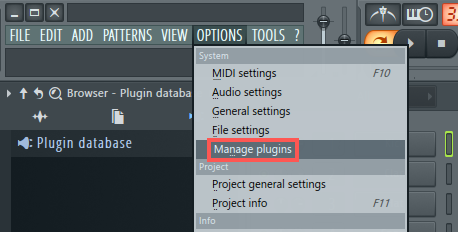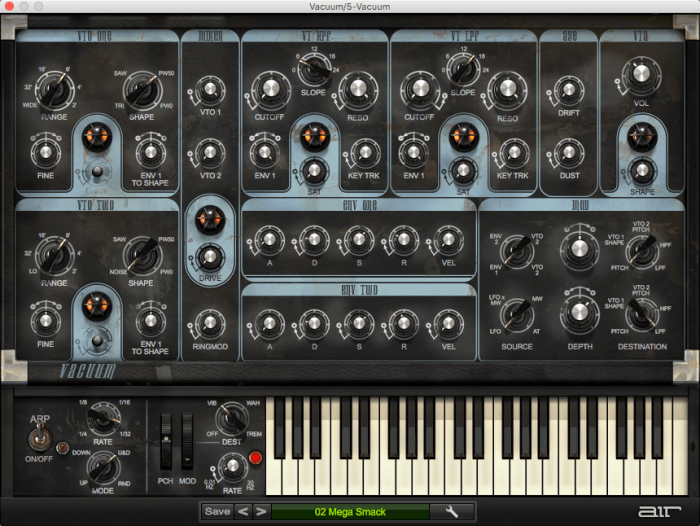- Pro Tools comes ready packed with two awesome tools for sequencing drums: Xpand! Is the Swiss army knife synthesizer in Pro Tools, doing everything from kicks to tambourines to bass tones to strings and so on, Boom is your typical drum machine, reminiscent of famous hardware such as the Roland TR-808.
- Close Pro Tools. Pro Tools scans for plugins upon launch. To avoid any problems, close Pro Tools.
- Install VST Plugins in Pro Tools A commonly cited problem with Pro Tools, an audio creation and production software, is that it will not work with third-party developers. With thousands of Virtual Studio Technologies plug-ins (or VSTs) to choose from, many Pro Tools users want to expand their workstations by adding them.
- Pro Tools Vst Plugins Folder
- Pro Tools First Plugins Folder
- Pro Tools Vst Plugins
- No Vst Plugins Folder
If the relevant plugin files are in the above folder, perform a rescan: To do a Rescan you need to delete certain files on your computer depending on your Pro Tools version. Please follow the official Avid website to do this. No matter where you install your VST plug-ins, always make sure that this location is defined as a VST folder in your sequencer so it can load the plug-ins. For more information on this, refer to the manual of your sequencer. RTAS / AAX Plug-Ins The RTAS /AAX path is fixed for all applications and cannot be changed.
 UPDATE: Both problems solved.
UPDATE: Both problems solved.Choose the VST Plug-in Folders tab, and click on 'Add' to specify a custom folder for your VSTs. If you select 'Default', it will revert to your operating system's default plug-in folder. Then, go to the Available Plug-ins tab and choose 'Scan for Plug-ins'.
I got AmpliTube 4 to work in standalone mode by removing version 4.03 and installing version 4.02 in it's place.
To get Amplitube 4 working as a plug-in, the two files you need to copy into your host plug-ins folder are:
1. C:Program FilesVstPlugInsAmpliTube 4 .dll
2. C:Program FilesCommon FilesAmpliTube 4.vst3
I can't swear to it, but I don't recall seeing the file referred to in 1. on my file system until after I removed v4.03 and replaced it v4.02.
Anyhow, update posted in the even it might help someone else.
ORIGINAL PROBLEM STATEMENT:
I'm trying to use AmpliTube 4 and Fender bundle (licensed) on Windows 10. Can someone please tell me exactly what AmpliTube file(s) I need to copy into my host plug-ins folder to use the plug-in and where on the Windows 10 file system I might find them?
So far, I have managed to bring Mobius 2 via JBridge and Cubase Groove Agent 4 VST's into my custom plug-ins folder on Ableton Live 9 (64-bit) and Ableton sees them no problem so I obviously understand the process in general and Ableton is not the problem, but for the life of me I cannot figure out what AmpliTube 4 files I'm supposed to be dropping in my plugins folder.
As an aside, Amplitube 4 standalone stubbornly refuses to use the native ASIO driver of my Steinberg UR44 interface. Standalone Cubase Groove Agent 4 and Positive Grid Bias FX have no problems in that regard.
So, as it stands, I can't use AmpliTube 4 at all. Not in standalone mode because it refuses to use my audio interface's native ASIO driver and not as a VST plugin because I can't find the right files to drop in my host plugins folder.

My primary concern right now is getting Amplitube 4 to work as a VST plug-in, so can someone please tell me which AmpliTube VST-related files I need to be looking for?
Thank you.
If you’re involved in audio production, it’s hard to avoid Pro Tools. Even if your DAW of choice is one of the many other professional software sequencers out there, you’ll probably have to use Pro Tools at some point. Although it is a quality platform for audio processing, Pro Tools does have one notable drawback – it doesn’t run VST plugins (well, you could view it as an advantage, if you happen to have unlimited cash reserves for buying RTAS goodies)…
Pro Tools Vst Plugins Folder
Plugin Play – VST versus RTAS
 Pro Tools plugins are in a format called Real Time Audio Suite, which is a proprietary Digidesign/Avid format. As such, only official products by recognised developers are released as Pro Tools plugins. While this does help to ensure the stability of your system, it also means that the army of DIY plugin programmers out there can’t create any home brew apps.
Pro Tools plugins are in a format called Real Time Audio Suite, which is a proprietary Digidesign/Avid format. As such, only official products by recognised developers are released as Pro Tools plugins. While this does help to ensure the stability of your system, it also means that the army of DIY plugin programmers out there can’t create any home brew apps. As VST is an open source platform, there are literally hundreds of free VST plugins available on the Internet. Many of these are extremely useful. Some of them may not work very well, and some of them may destabilise your system, but you can avoid or uninstall these. In a previous post, I recommended some free VST plugins to get started with.
That’s A Wrap for RTAS
Pro Tools First Plugins Folder
Unfortunately, there’s no free solution to getting VST into your Pro Tools rig. However, there is a cheap way – using FXpansion‘s VST to RTAS adaptor.
Pro Tools plugins can be quite pricey, so considering the huge arsenal of VST instruments and effects that are readily available for free, it seems that shelling out the £50 or so for the FXpansion adaptor is a wise investment. I’ve been using the device for a couple of weeks now, and so far it has been working extremely well.
Basically, the adaptor is a program that creates ‘wrappers’ for your VSTs so that Pro Tools can see them as RTAS. All you do is run the program, point it at your VST folder and press the ‘wrap’ button.
RTAS Wrapping In Action
When you run Pro Tools, all your successfully wrapped plugins will appear in your plugin selection menu alongside the native RTAS plugins. You can then insert these into your channels as you would any other plugin.
Overall, of the 80 or so plugins that I tested, only four refused to be wrapped. Of the ones that did wrap, one or two exhibited some strange graphical behaviour, and a couple refused to open. However, the vast majority behaved exactly as they would if you opened them in Cubase.
Pro Tools Vst Plugins
According to tests by SOS, the adaptor even works with certain DSP hardware-driven plugins such as TC Electronic’s Powercore and Universal Audio’s UAD1. If you would like to have access to these in Pro Tools, then this is certainly worth a shot.
Overall, the benefit of having your VST plugins available within the Pro Tools environment far outweighs the cost of the adaptor. Once you’ve weeded out any VSTs that might not play nicely with Pro Tools, the increase in resources is indeed a godsend. If you run into any problems with particular plugins, it might be worth checking out the KVR site for more info, and FXpansion themselves are quite active in ironing out problems in this regard.